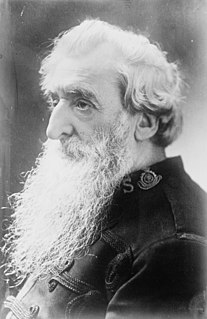A Quote by Isaac Bashevis Singer
When the time comes I will go joyfully. Whatever may be there, it will be real, without complication, without ridicule, without deception.
Related Quotes
Muscles without strength, friendship without trust, opinion without risk, change without aesthetics, age without values, food without nourishment, power without fairness, facts without rigor, degrees without erudition, militarism without fortitude, progress without civilization, complication without depth, fluency without content; these are the sins to remember.
We may live without poetry, music and art; We may live without conscience, and live without heart; We may live without friends; we may live without books; But civilized man cannot live without cooks. . . . He may live without books,-what is knowledge but grieving? He may live without hope,-what is hope but deceiving? He may live without love,-what is passion but pining? But where is the man that can live without dining?
To claim that the souls of men will be happy or unhappy after the death of the body, is to pretend that man will be able to see without eyes, to hear without ears, to taste without a palate, to smell without a nose, and to feel without hands and without skin. Nations who believe themselves very rational, adopt, nevertheless, such ideas.
Without culture there can be no growth; without exertion, no acquisition; without friction, no polish; without labor, no knowledge; without action, no progress; and without conflict, no victory. The man who lies down a fool at night, hoping that he will waken wise in the morning, will rise up in the morning as he laid down in the evening.
He was a foe without hate; a friend without treachery; a soldier without cruelty; a victor without oppression, and a victim without murmuring. He was a public officer without vices; a private citizen without wrong; a neighbor without reproach; a Christian without hypocrisy, and a man without guile. He was a Caesar, without his ambition; Frederick, without his tyranny; Napoleon, without his selfishness, and Washington, without his reward.
It is only when we begin to relax with ourselves that meditation becomes a transformative process. Only when we relate with ourselves without moralizing, without harshness, without deception, can we let go of harmful patterns. Without maitri (metta), renunciation of old habits becomes abusive. This is an important point.






































